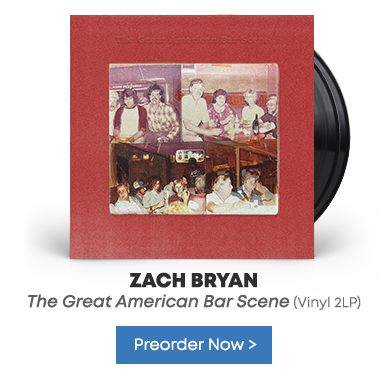Whether at work or with friends, I seemingly get ridiculed by everyone about my love of Laurel Canyon rock n' roll – and passion for music of a certain era. People mock me for being unfamiliar with albums released after the late 70s. To be honest, they have a point. I always felt I could spend my entire life looking backwards, exploring the amazing music made decades ago. But the truth is I see a plenty of contemporary artists in Chicago clubs and theaters. Today, I'm going to discuss two 21st-century albums that give me immense pleasure.
First up: Yo-Yo Ma, Chris Thile, Edgar Meyer, and Stuart Duncan The Goat Rodeo Sessions
Imagine writing new music for Yo-Yo Ma and joining a select list that includes composers such as Bach, Beethoven, Schubert, and Brahms. That is exactly what happens on The Goat Rodeo Sessions, an acoustic masterpiece. As one of the world's elite cellists, Ma is also one of the most adventurous classical icons active today. While the thought of playing music off the page remains verboten for most classical instrumentalists, here, Ma steps outside the box and performs with a trio of acoustic virtuosos, melding classical themes and bluegrass instrumentation.
A primary reason this fantastic album means so much to me owes to the contributions of two of my favorite MacArthur Fellowship "Genius Grant" Award winners: Edgar Meyer and Chris Thile. These exceptional songwriters and players effortlessly step into any style of music, from bluegrass to classical, from jazz to roots. I have been fortunate enough to see both perform in many settings over the past few decades. The last show of theirs I saw was at Symphony Center in Chicago, formerly known as Orchestra Hall, home of the CSO.
All the songs on The Goat Rodeo Sessions are originals written by Meyer, Thile, and Stuart Duncan. Ma adds his deft touch to every cut. The latter's cello and Duncan's fiddle interweave lines together, dancing around melodies and blending tonalities with grace and precision. Throughout, classical themes combine with instrumental "breakdowns" that ebb and flow into new, sensory-elevating constructs. Jazz intertwined with chamber pieces, all played on instruments unfamiliar to the chamber crowd. What's more, tempos shift like summer winds, Ma and Meyer each soloing one minute and supporting the foundation the next. A few tracks even have vocals; singer Aoife O'Donovan stands out on "No One But You" and "Here and Heaven," which she co-wrote.
Two quick asides: While perhaps the least-known of the quartet, Duncan proves a phenomenal multi-instrumentalist. He can seemingly play any stringed instrument known to man. You might have seen him burning up the stage on the Robert Plant/Alison Krauss tour. Also, anyone unfamiliar with Thile's mandolin playing should check out his otherworldly records. Not All Who Wander Are Lost is a great place to start.
Spread lovingly over four sides, Sony Classical's 2LP pressing of The Goat Rodeo Sessions is well-made and affordable, if not completely audiophile quality. I heard a couple of repeating ticks and pops along the way, but they did not alter my sense of getting inside the music. I cannot imagine anyone not enjoying this journey. I guarantee it's unlike anything you have experienced.
Next up: Vetiver Up on High
Several years ago, I went to see Dawes at Thalia Hall, a venue in the Pilsen neighborhood of Chicago. Dating from the late 19th century, the space originally served as a public hall. Dawes' debut album, North Hills, intrigued me in that it's heavily influenced by Laurel Canyon music. But that night, the opening band held my attention. Vetiver sounded new – not a throwback to an earlier time. It took a modern approach to songwriting, singing, and playing. On the way out, to show my support, I bought a few Vetiver LPs (Tight Knit and Things of the Past) from the merch table.
Over the last few years, I have continually enjoyed turning on friends and associates to the group. It's fun to see the Vetiver deservingly gain more recognition and headline shows around the country. The band's most recent LP, Up on High, is more of the same, only more refined. It feels warm and satisfying, similar to a walk on the beach on a summer day at sunset. On every song, Andy Cabic – Vetiver's lead songwriter, singer, and guitarist – delivers lyrics with a voice that seamlessly meshes with organic sonic landscapes comprised of organ swells, bass, drums, keyboards, and the occasional pedal steel.
Released on LP via Mama Bird, Up on High is a nice-sounding, affordable domestic pressing. Because it sounds so natural and real, I'm guessing it was recorded to tape. With its minimal product and modern tonality, the album – well, all Vetiver records – feels incredibly soothing to me. As the group sings on "All We Could Want," "Stay awhile/Rest here in my arms/For now, we have all we could want." On that note, I'm off to bed.
26th Mar 2020




































